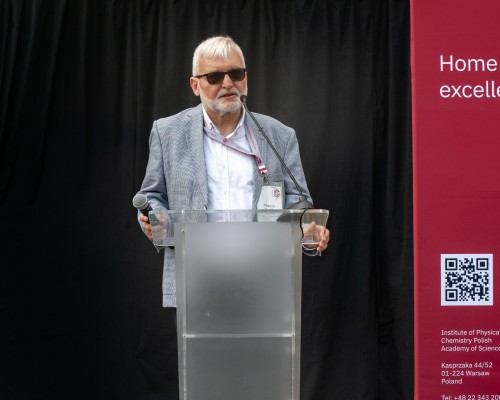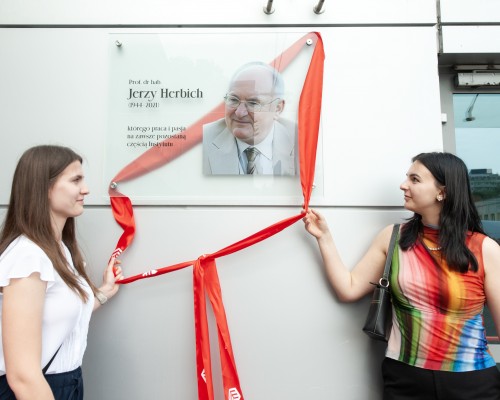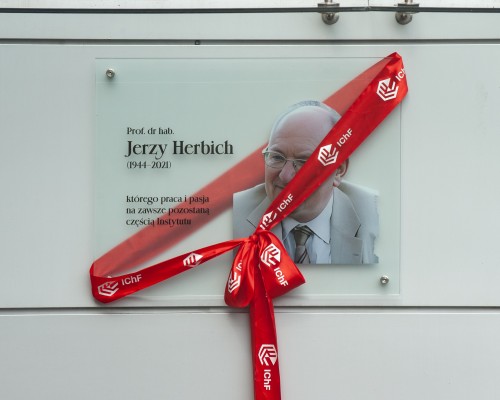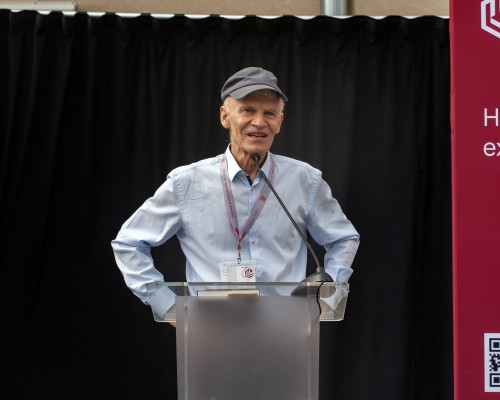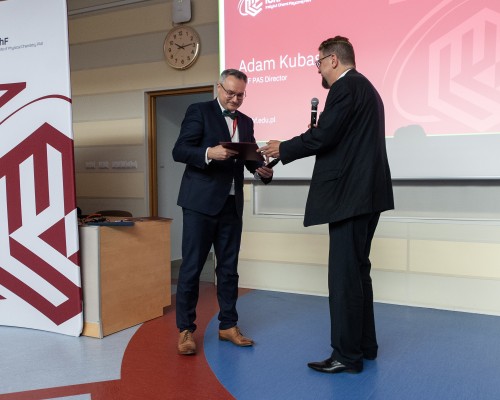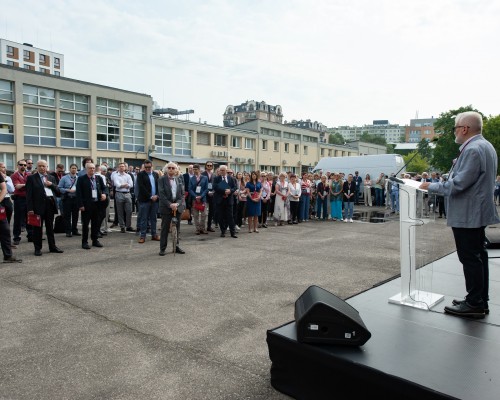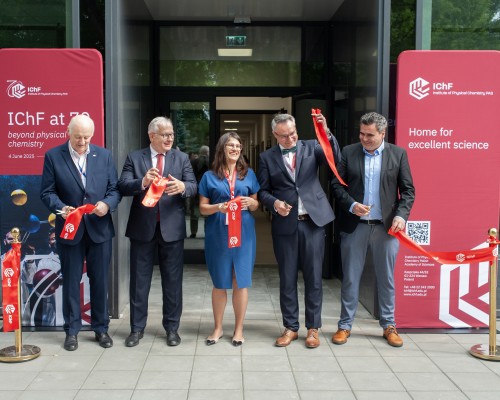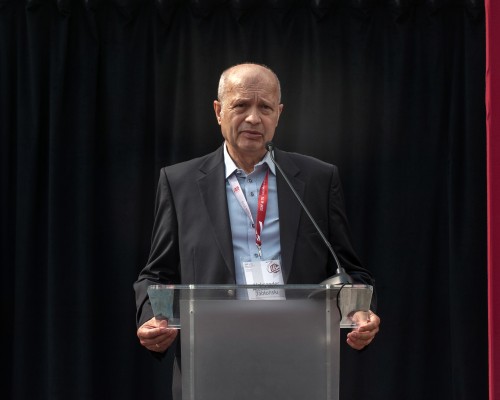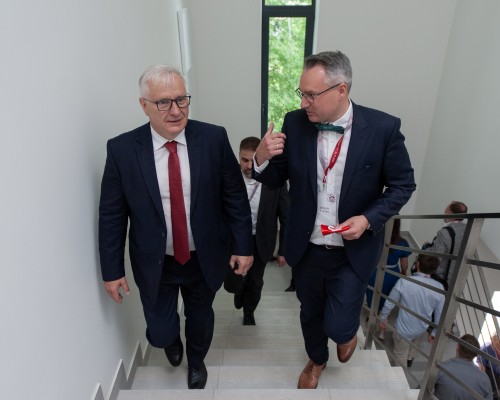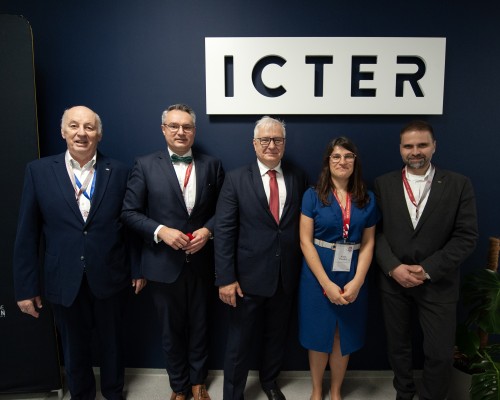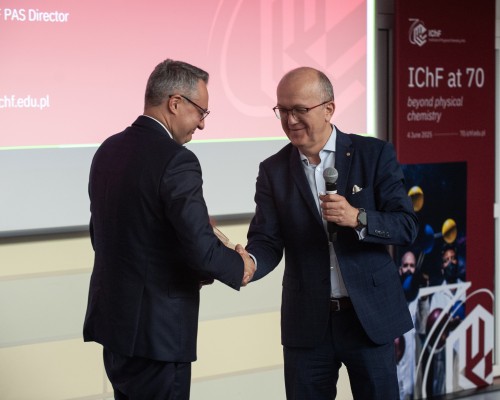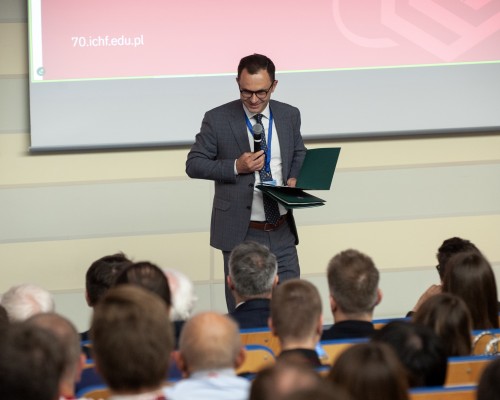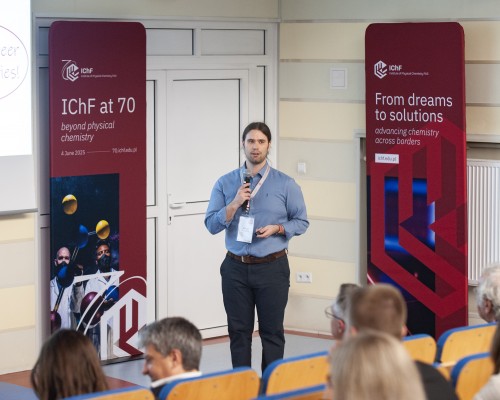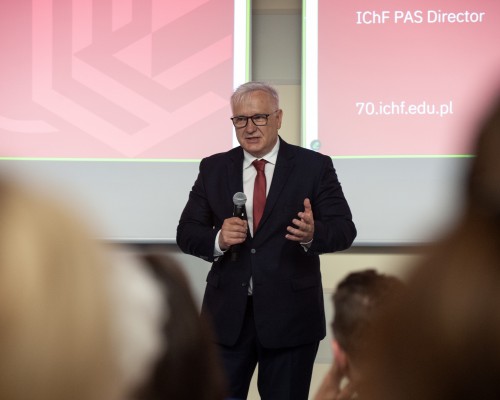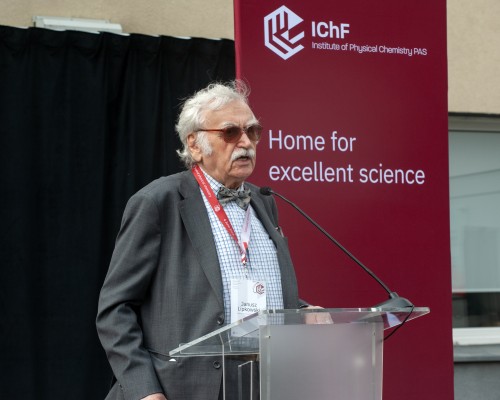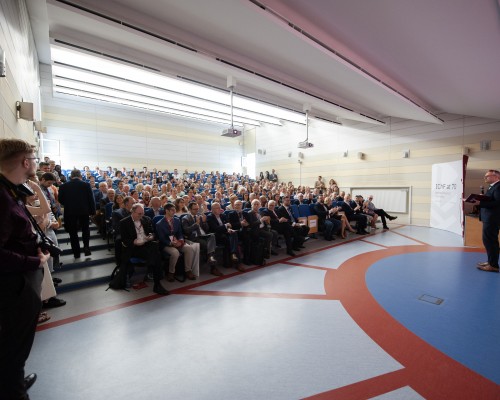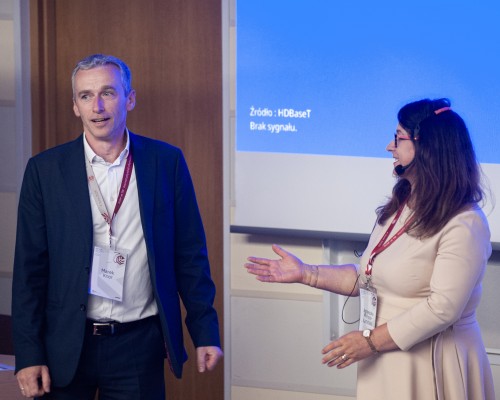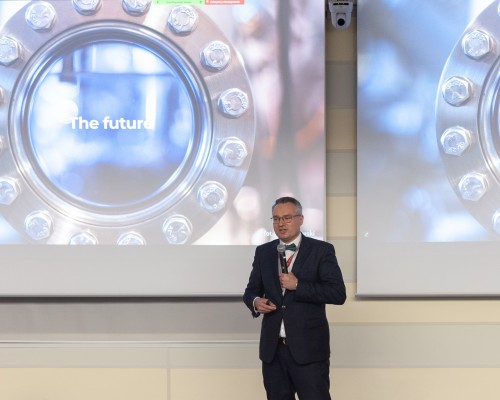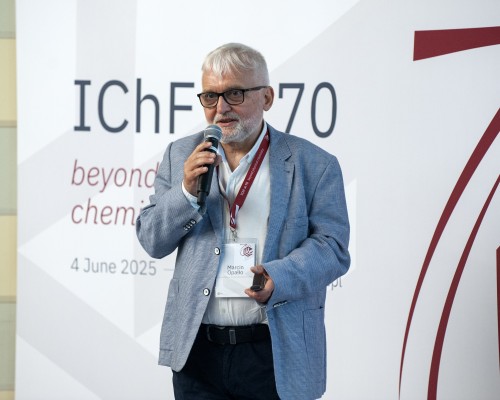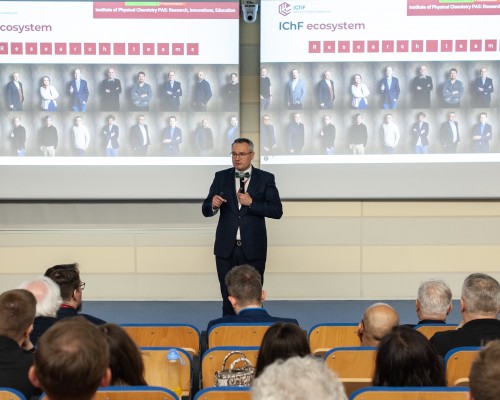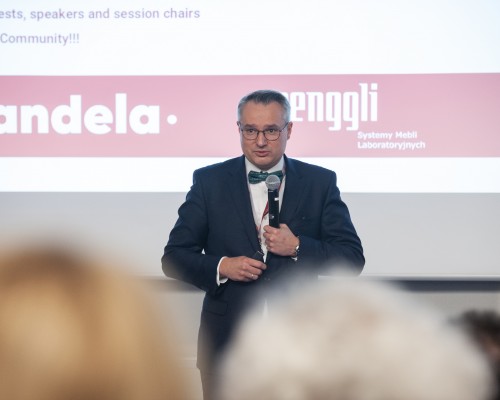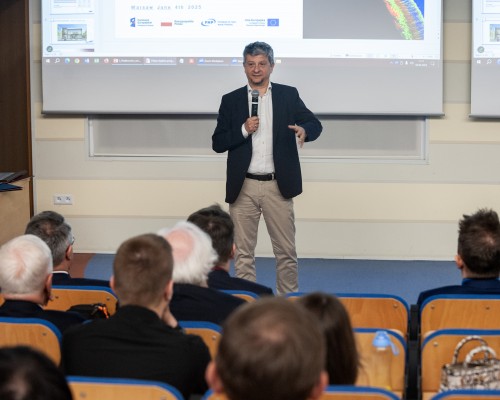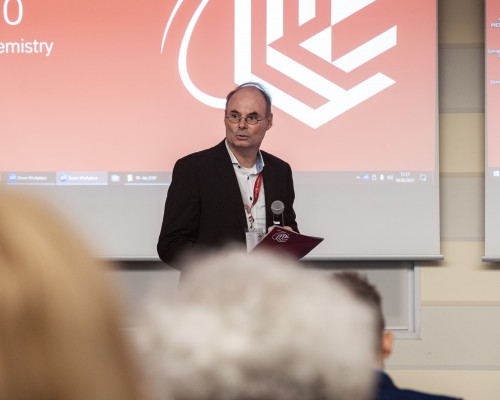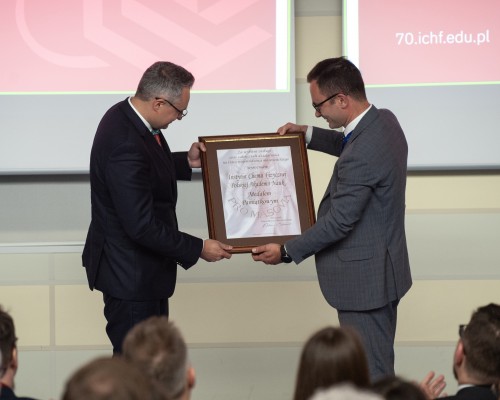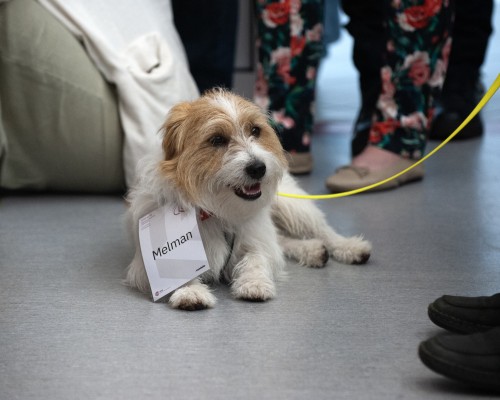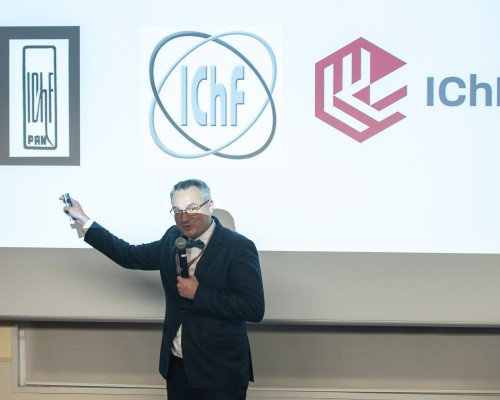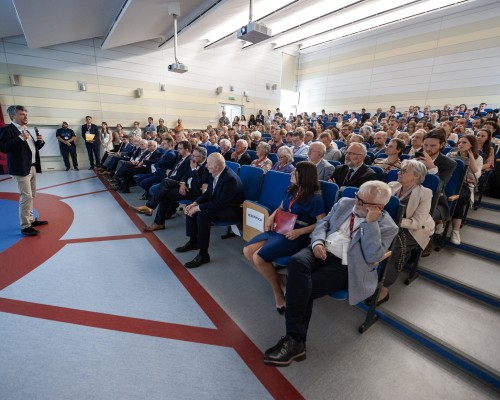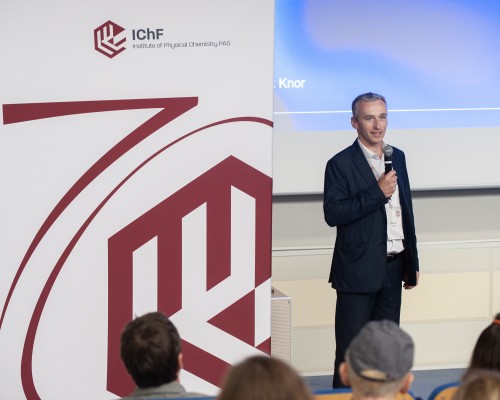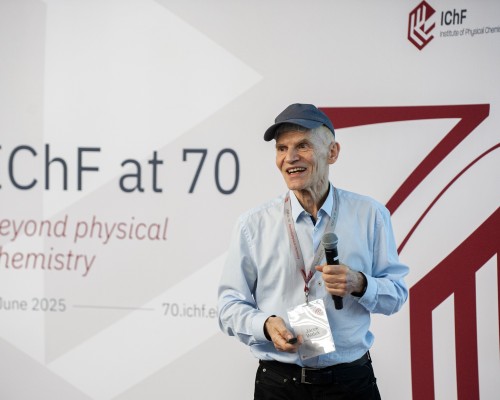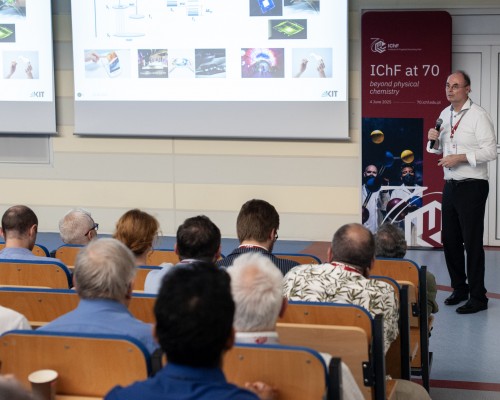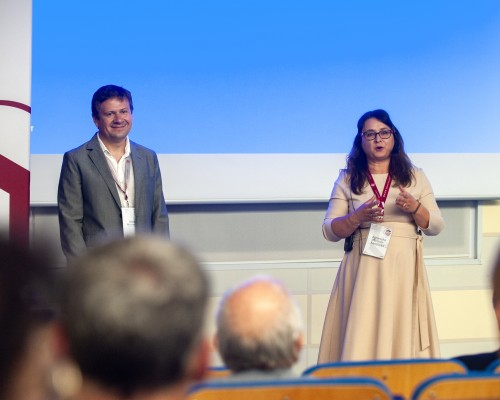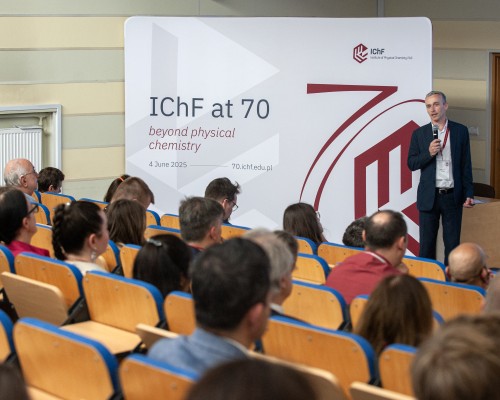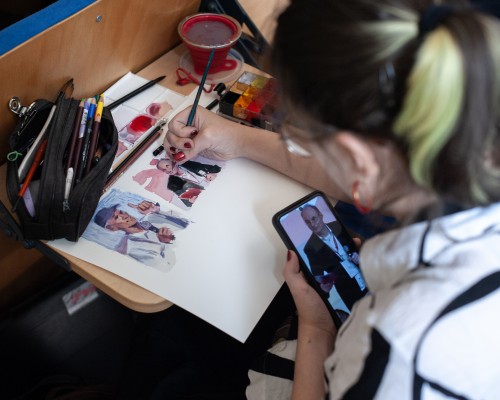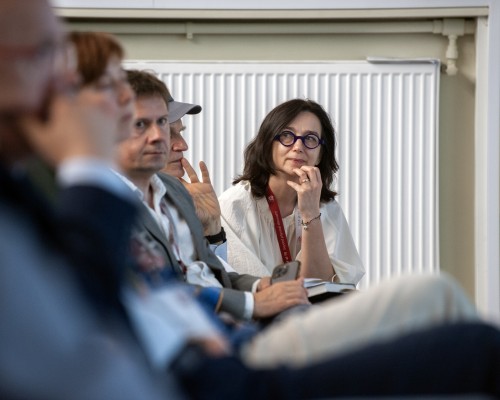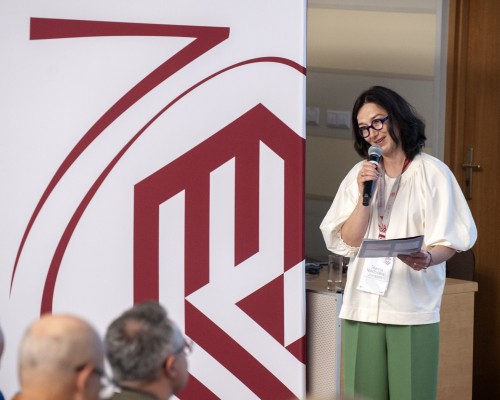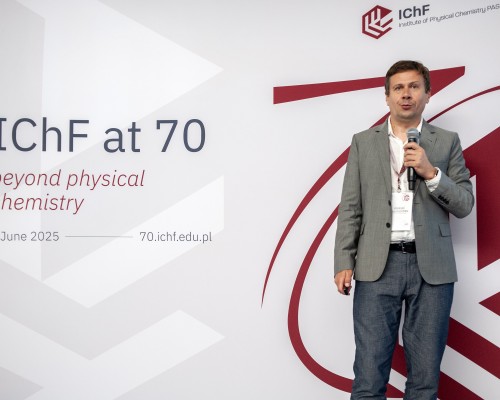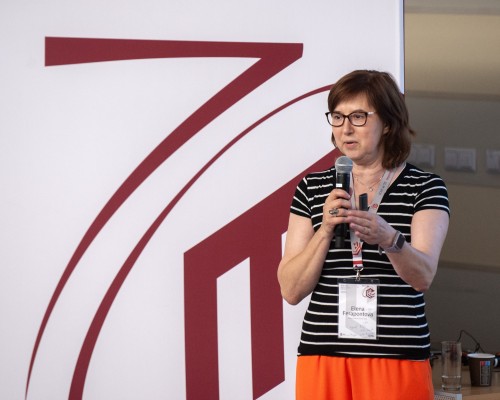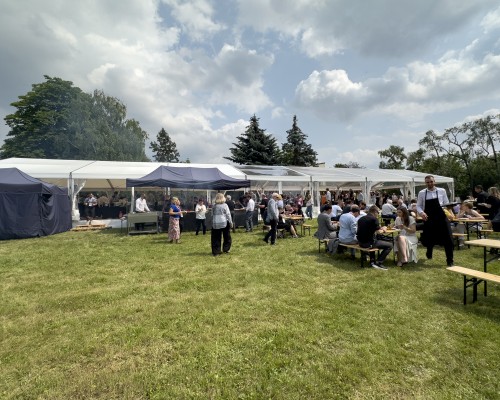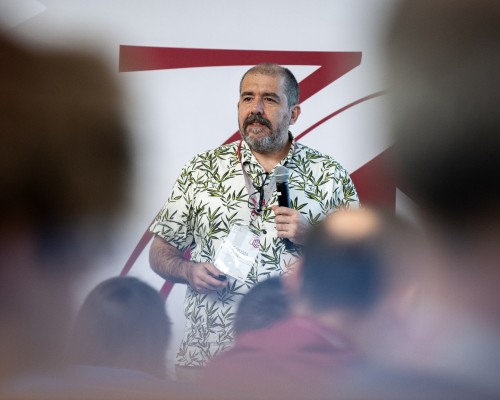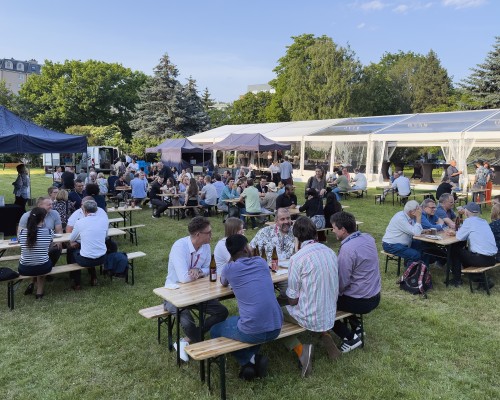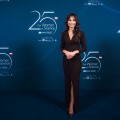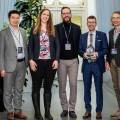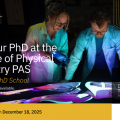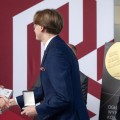Celebration of the 70th anniversary of the Institute of Physical Chemistry, Polish Academy of Sciences
Reading time: about 6 minuts
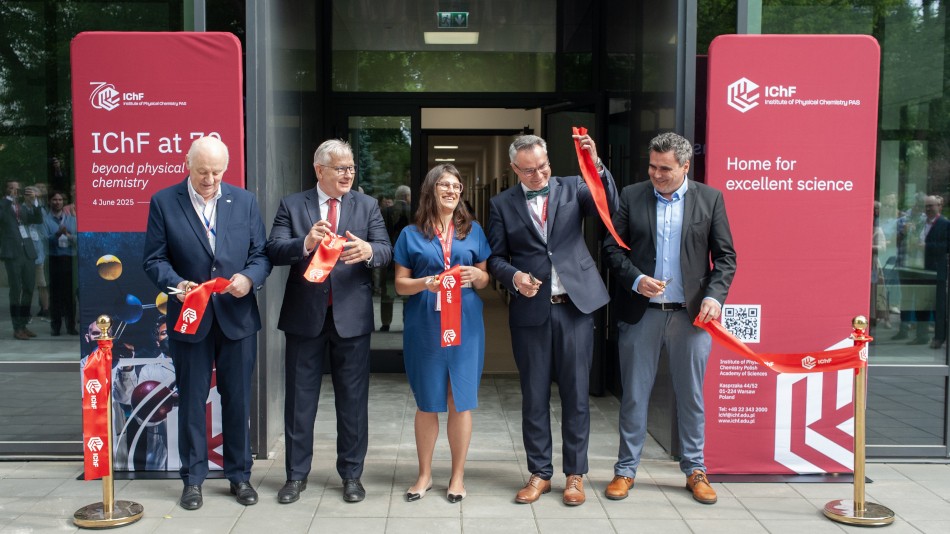
On June 4, 2025, the 70th anniversary of the Institute of Physical Chemistry, Polish Academy of Sciences (IChF) was celebrated in Warsaw. The anniversary event brought together current and retired employees, associates, and friends of the Institute, as well as representatives of state and local government institutions and the scientific community – both from Poland and abroad.
First, a plaque dedicated to Prof. Jerzy Herbich was unveiled – a long-time researcher and an excellent organizer of the Institute's life. His activity significantly contributed to the modernization and expansion of the Institute's research facilities and strengthening its scientific position. Prof. Herbich's family was present at the ceremony – including his son and granddaughters, who jointly unveiled the commemorative plaque. This gesture gave the ceremony a personal and symbolic dimension.
Then, the participants made their way to the Institute’s new laboratory building, the opening of which was one of the key moments of the anniversary. This space will be dedicated to the needs of research teams implementing projects within the programs Era Chairs "Perfection", and Teaming for Excellence "TRIO-VI (CoE)" ICTER.
The official part of the ceremony took place in the Institute's lecture hall. The meeting was opened by the director, Prof. Adam Kubas, who welcomed the guests and gave an inaugural speech.
The first session, entitled "Building a bright future on solid foundations (and funding)", was attended by representatives of public institutions, including Prof. Andrzej Szeptycki—Undersecretary of State in the Ministry of Science and Higher Education—who in his speech drew attention to the importance of popularizing science and the presence of scientists in the public debate. He argued that without the involvement of researchers in explaining the social meaning of their work, it will be difficult to gain understanding and support from decision-makers. He emphasized that science requires not only research excellence, but also communication.
The president of the Polish Academy of Sciences, Prof. Marek Konarzewski, echoed this sentiment, reminding the audience that scientific discoveries are the basis of any progress. However, this requires understanding and acceptance of this fact by society. He added that representatives of the research community should strive to explain the significance of their work, not in the sense of simplification, but of bringing its value and significance to the fore.
Director Adam Kubas received the "Pro Masovia" medal from a representative of the Masovian Voivodeship and a diploma of recognition issued by the Marshal of the Masovian Voivodeship, Adam Struzik. The speaker emphasized that it is thanks to institutes such as IChF that the Masovian region has achieved the status as a leader in innovation and scientific research in Poland, concentrating over one third of the national R&D potential and generating over 20% of GDP.
Prof. Marcin Opałło summarized the seventy-year history of the Institute in the lecture "70 years of IChF in a nutshell." Then, Director Adam Kubas, in the presentation "IChF Today and Tomorrow", outlined the current challenges, strategic goals and the role that the Institute currently plays in the national and international science system. He also presented the current structure of the unit and the vision for its further development.
Prof. Maciej Wojtkowski spoke about interdisciplinarity and the importance of translational research, presenting the activities of the International Centre for Eye Research ICTER in a lecture entitled "Vision of vision at IChF: the case of ICTER."
Prof. Stefan Bräse, on behalf of the International Advisory Board of the IChF, extended their best wishes to the Institute on the occasion of the anniversary, concluding his speech with a toast: “To science, to friendship, to the future!”
The next part of the program was devoted to reflections on the development of scientific careers at IChF. The session, chaired by Prof. Agnieszka Michota-Kamińska, was opened by Wiktor Kulesza, chairman of the Council of Doctoral Students, presenting a perspective of those beginning their scientific work at the Institute. Prof. Aleksei Aksimentiev recounted how doctoral studies at the Institute influenced his scientific path from research on the basic components of matter to contemporary issues of biophysics and virology. Institute alumnus Dr. Marek Knor spoke about the importance of physical chemistry in industry, while Prof. Gonzalo Angulo presented a personal story about his scientific journey from Andalusia to Warsaw.
During the lunch held in the Institute’s gardens, participants had the opportunity to reconnect — sharing memories, discussing current matters, and looking ahead to the future, often meeting in person for the first time in a long while.
After lunch the guests returned to the lecture hall for the third session, devoted to scientific research. The session was chaired by Prof. Joanna Niedziółka-Jönsson. Prof. Jacek Waluk presented a reflection based on almost five decades of his own experience at the Institute. Then Prof. Stefan Bräse presented a lecture on “Digital chemistry - a trip into the blue,” Prof. Elena Ferapontova talked about the application of electrochemical methods in cancer and infection diagnostics presenting “Antimicrobials & Cancer Diagnostics Through an Electrochemical Lens,” and Prof. Aleksei Aksimentiev presented “Toward predictive modeling of bimolecular systems, from physical chemistry of polymers to viruses and organelles.”
The jubilee festivities concluded with a gathering in the Institute's gardens, where attendees continued to exchange ideas in a relaxed atmosphere over a shared meal. Refreshments were provided by Renggli, whom we thank for their support.
The celebration of the seventieth anniversary of the Institute of Physical Chemistry, Polish Academy of Sciences provided an opportunity not only to remember, but above all to reflect on the future of science and the responsibility of the academic community towards society. The focus should be on the human being: the researcher, the teacher, the recipient of knowledge. The Institute does not exist outside the social context - it thrives on the questions that scientists have the courage to ask and through the relationships they build with the world outside science. These are the bonds that give meaning to research and allow us to think about science as a common good.
"The Institute is not just a place of research, laboratories, grants and publications. It is, above all, people - their passions, choices and the courage to ask questions. They are the ones who build the bridge between dreams and solutions that change the world."
— Prof. Adam Kubas, director of the Institute.
We thank the Candela Foundation for co-organizing the ceremony and Grzegorz Krzyżewski for capturing the atmosphere of the anniversary in photographs.
We invite you to visit the anniversary commemorative website: https://70.ichf.edu.pl/.
Text: IChF PR team.
Main photo for the post: Grzegorz Krzyżewski
- Photo source: Grzegorz Krzyżewski
- Date: 11.06.2025
